This program improves quality of care across the health professions by teaching Evidence Informed Healthcare methodologies.
Evidence Informed Healthcare (EIHC)
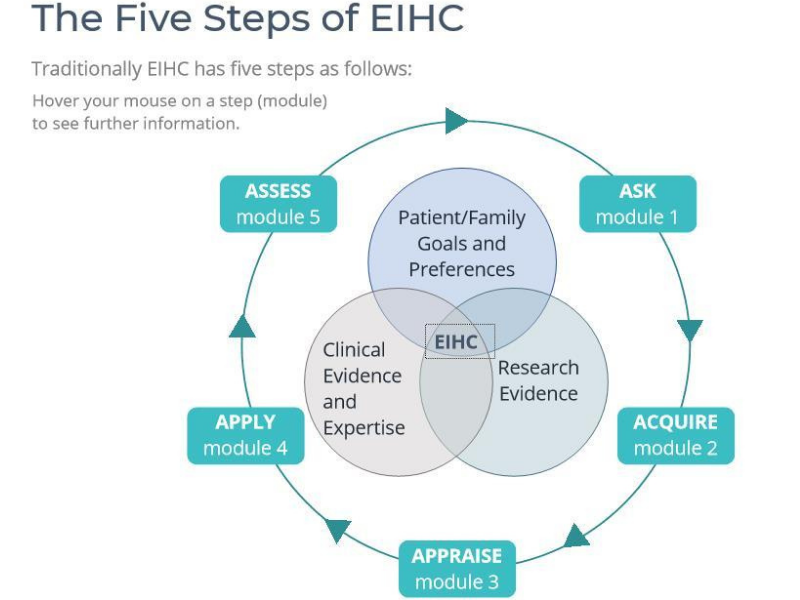
Click here to view larger image.
- is patient-centred
- is part of lifelong self-directed learning
- maintains clinical competence
- enables equitable care for patients
- engenders confidence and satisfaction in the practitioner
In 2016 a UBC project team of educators, clinicians, and librarians developed five EIHC modules* to be used as a common resource for health care profession teachers. They were designed to enable students, residents, and clinicians in many health disciplines to help patients make decisions ‘based on the best available, current, valid, and relevant evidence’. Knowledge and skills are gained through use of virtual patient cases that engage the learners and give them examples of application in clinical practice. Media elements engage the learner and provide clinical examples. Modules were designed for online learning, providing maximum flexibility and can be used either as stand-alone modules or in conjunction with other learning.
Due to demand the learning objectives and modules have been updated using the same rigorous processes. To contact the program, email med.eihc@ubc.ca.
Learning objectives
Introduction to Evidence Informed Health Care & Question Formation – Module 1
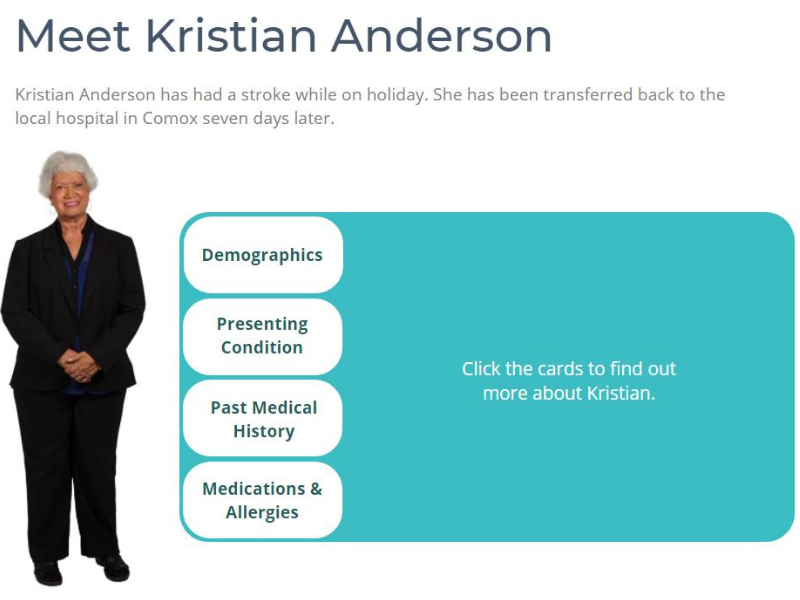
Click here to view larger image.
By the end of this module, learners will be able to:
- Define EIHC including the five steps of the process
- Describe how EIHC fits into contemporary practice
- Describe how EIHC is used as part of lifelong self-directed learning and the maintenance of clinical competence
- Describe the elements (e.g. PICOT, ECLIPSE) of answerable questions
- Recognize and articulate that the patient is at the center of EIHC
- Create answerable, formatted PICOT or other structured questions
- Create a prioritized list of questions
- Address barriers to asking structured questions and follow them up
- Register online
Acquiring Information – Module 2
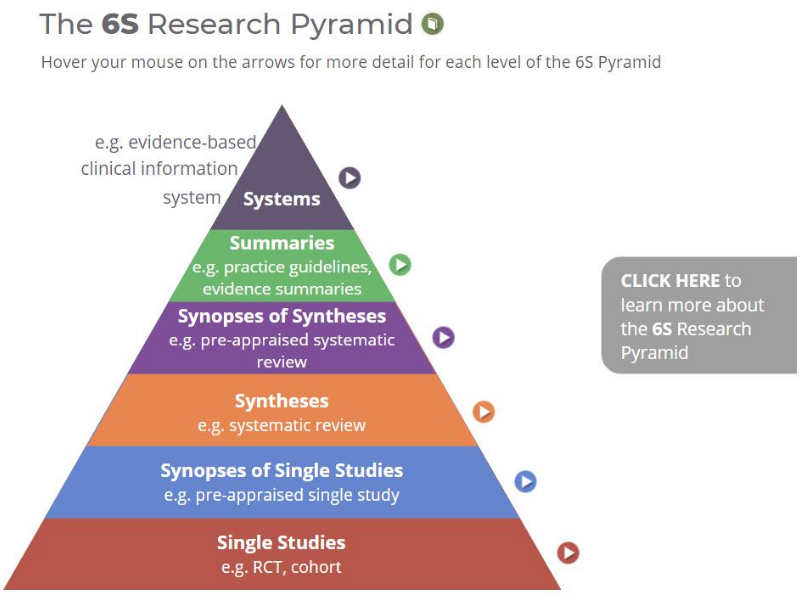
Click here to view larger image.
By the end of this module, learners will be able to:
- Match the appropriate research design to the type of question being asked
- Identify credible, evidence-explicit sources of information
- Identify strengths and weaknesses of levels of evidence
- Describe the process for acquiring information from trustworthy sources to find appropriate and relevant information
- Perform a variety of searches using different sources
- Incorporate searching for evidence into lifelong learning
- Register online
Appraising the Evidence – Module 3
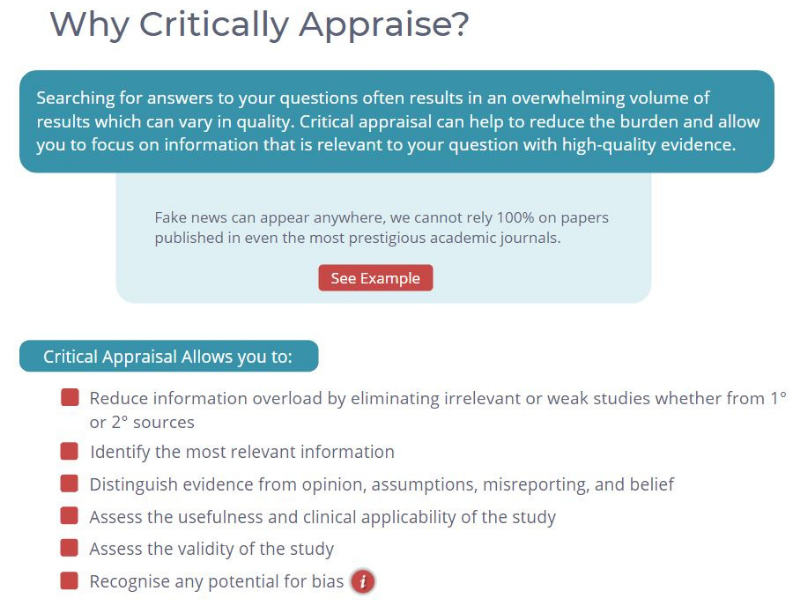
Click here to view larger image.
By the end of this module, learners will be able to:
- Use an answerable question to plan a search strategy to find an appropriate and relevant article
- Demonstrate an understanding of the role of critical appraisal in current practice
- Critically appraise articles and extract evidence
- Compare the output of critically appraising primary sources with secondary sources of information
- Demonstrate an understanding of when and how to reach out for help
- Register online
Applying the Evidence – Module 4
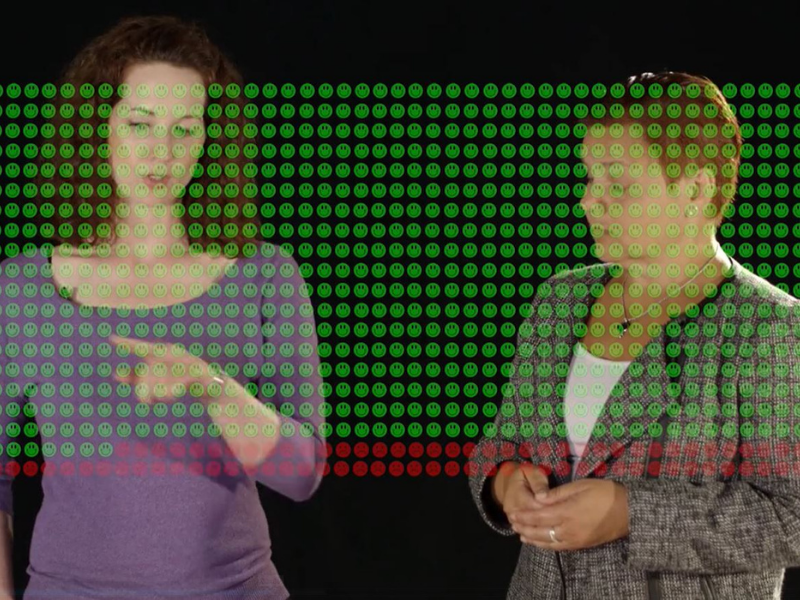
Click here to view larger image.
By the end of this module, learners will be able to:
- Explain how clinical decision making can be used to integrate information from different sources to enable evidence informed practice
- Identify and use a set of evidence informed clinical tools relevant to your practice
- Describe the processes of incorporating evidence into practice as a patient/client-centered practitioner
- Identify sources of patient handouts or information relevant to your practice
- Synthesize, summarize, and present the evidence in a clear manner to patients/clients and relevant stakeholders
- Assess availability, feasibility, and acceptability to the patient/client of an evidence informed intervention within the context of practice
- Register online
Assessing the Application of the Evidence – Module 5
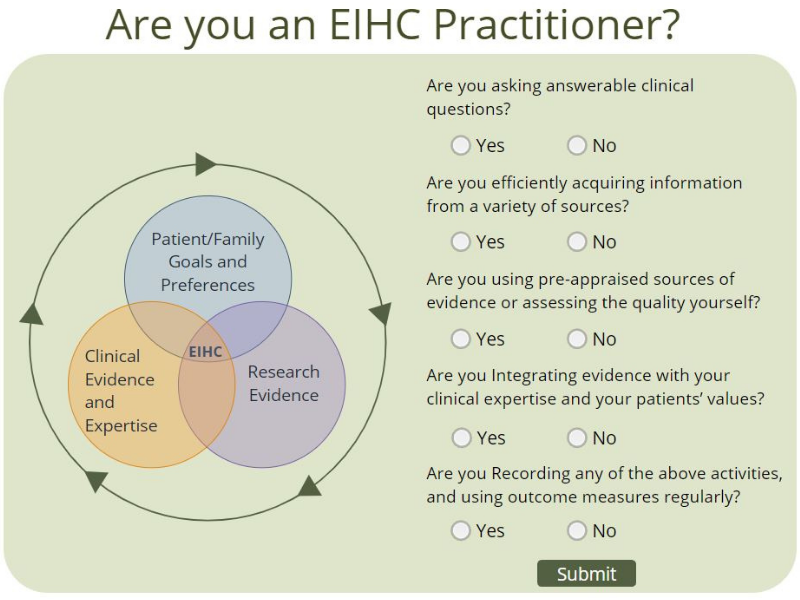
Click here to view larger image.
By the end of this module, learners will be able to:
- Identify and use a set of tools, relevant to your practice, for measurement of effectiveness and efficiency of EIHC practice
- Self-evaluate performance as a practitioner of EIHC
- Use facilitators and address barriers to your practice of EIHC
- Register online